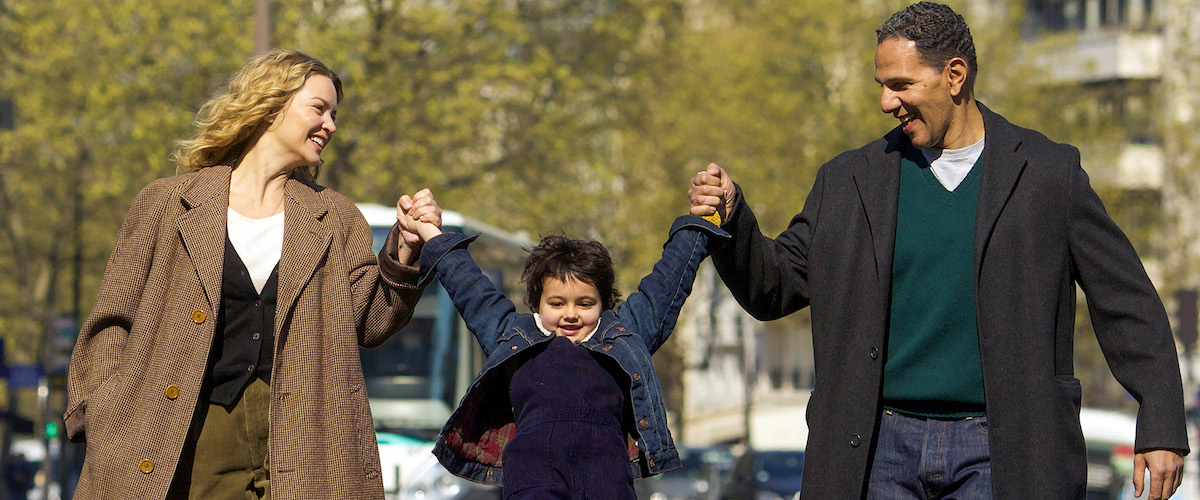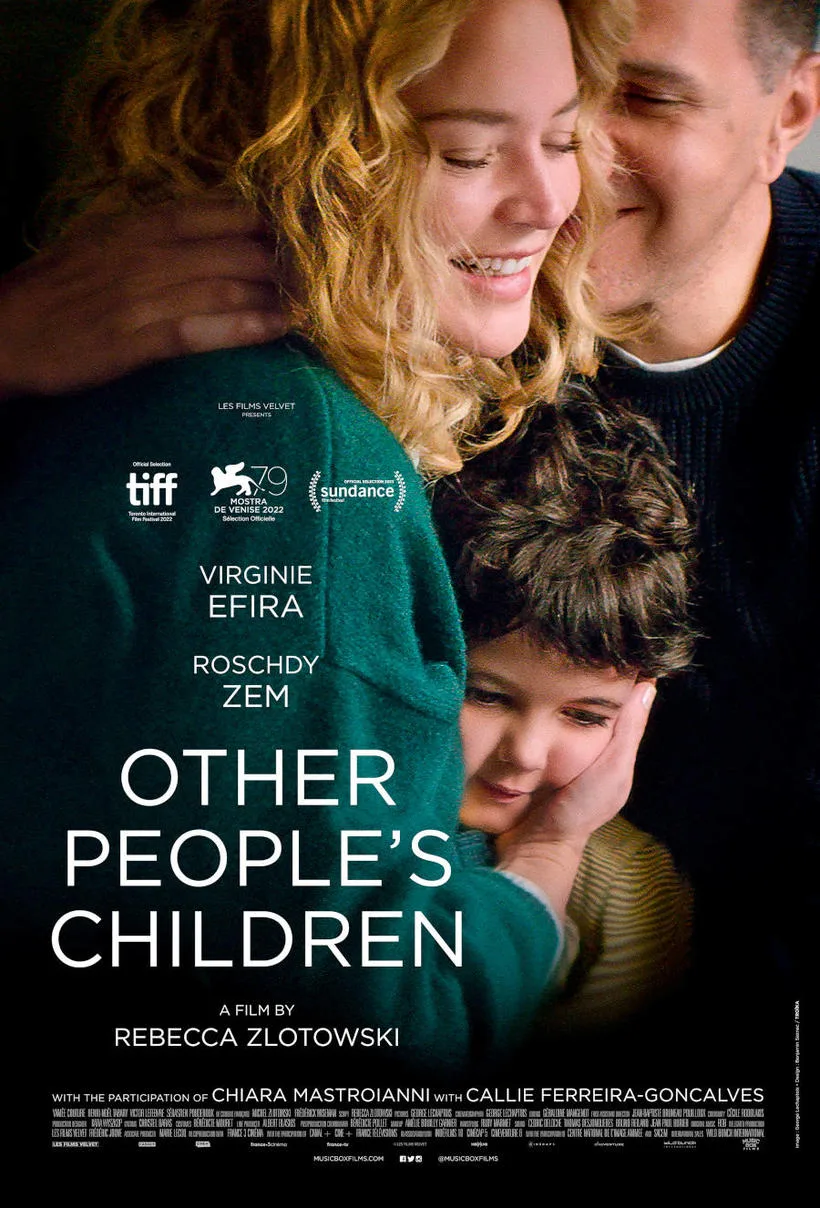The limits of sensitivity and empathy are tested in "Other People's Children," a tidy French slice-of-life drama about a dedicated high school teacher, her ticking biological clock, and her bittersweet romance with a single dad. Rachel (Virginie Efira) works through her feelings about maternity and partnership with Ali ("The Innocent" star Roschdy Zem) and then eventually with Leila (Callie Ferreira Goncalves), Ali's four-year-old daughter. Writer/director Rebecca Zlotowski ("Planetarium," "An Easy Girl") carefully considers Rachel's feelings throughout, especially by drawing attention to her performers' body language and on-screen chemistry with close-ups of their expressive faces.
Zlotowski's stylized depiction of Rachel's life is overly fastidious. Many creative decisions, from the score to the camera blocking, took me out of the movie. Instead of a complex character processing involved, compound emotions, I saw a talented filmmaker lightly touch upon a range of emotions while also studiously avoiding dramatic clichés and stereotypes. Each new episode held my hand tighter instead of deepening my appreciation of whatever Rachel was going through. I never worried or understood her beyond a point because she never looks so lost that she couldn't be swiftly rescued from herself by her over-protective creators.
Rachel's character-defining anxieties—about having children, finding love, and feeling loved at a certain age—only seem incredible given how quickly they're either addressed or defused. She worries about Dylan (Victor Lefebvre), a stubborn and underperforming student, and, later on, about Leila, who sometimes does not understand why she can't regularly visit her biological mother, Alice (Chiara Mastroianni). Rachel also obviously worries about her relationship with Ali, even when he says, "I love you" for the first time, or acknowledges her feelings when she fumes at him: "I resent you."
Zlotowski often reassures viewers that she, too, respects the sanctity of her characters' rich inner lives, like when Dylan firmly thanks Rachel for her consideration in an early scene or when Zlotowski cuts to black after Rachel says, "I resent you" but before Ali replies, "I know." That scene doesn't end there; rather, it only concludes once Rachel adds, "I know that you know."
Sometimes Zlotowski gives herself more work by distancing herself from her characters, presumably to deny the sort of pat cynicism that could, at any moment, make Rachel a tragically overburdened symbol of modern womanhood. She seems to take after the non-judgmental Rachel by never presuming to know everything her characters think or feel. "Other People's Children" is most affecting when Zlotowski allows Efira's expressive, sometimes radiant performance to suggest Rachel's inner conflict. (She also has a great on-screen rapport with Goncalves.)
Unfortunately, Zlotowski regularly stops scenes as they get started. That teasing approach at least makes sense in early scenes with Ali, where Rachel's untidy nature is heavily suggested during her relationship's honeymoon phase. Zlotowski cuts away from an intimate moment when Rachel says, "I don't take the pill." Then Ali covers them both with a blanket after reassuring Rachel that "There are other ways." Soon after, Zlotowski ostentatiously pulls her camera around the corner from her characters when they, seated on a bathroom floor, bluntly prescribe each other's hang-ups—"You're an idealist, and I'm a pragmatist"; no, no, "you're serene, and I'm dissatisfied"—before brushing off their musings by admitting that "we're also a bit drunk."
Zlotowski's fussiness eventually feels like a defining feature of Rachel's story. A handful of song cues, from the repetition of Doris Day's melancholic "Again" to the frankly overbearing needle-drop of Jackson Browne's "Cocaine," only adds to that impression. Zlotowski treats her characters with kid gloves, as if making an object lesson of how she presents her characters' lives without resorting to hackneyed contrivances or emotional shorthand. A few vignettes end with a watery camera iris in on Rachel, as if to say that the only thing ending is the scene.
There unfortunately aren't enough open questions for viewers to ponder when Zlotowski does eventually (and repeatedly) black out the world for everyone but Rachel. There are some surprising asides and plot twists, as cinephiles will notice when American documentarian Frederick Wiseman appears as Rachel's sonographer in two scenes.
Wiseman's known for his unobtrusive, fly-on-the-wall style of documentary filmmaking, but here, he plays an older man who insists that if Rachel wants to have children of her own, the time is now. Wiseman's character—of course, named "Wiseman"—also nods along with Rachel when she looks to him for reassurance.
When Rachel asks Wiseman how much time she has, he knowingly says: "I ask myself that question every morning." And when she sighs that "life is short and long," he agrees: "Yes, life is long." We see Efira's warm smile, shown in a tight close-up. Then another watery iris takes us out to the next scene, though not until Rachel, off-camera, thanks Wiseman. I don't buy it, but maybe you could do with a little aggressive handholding.
In theaters today.




















